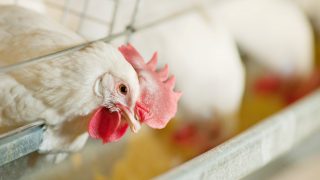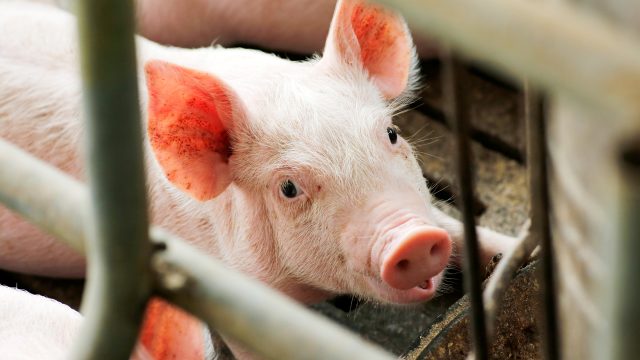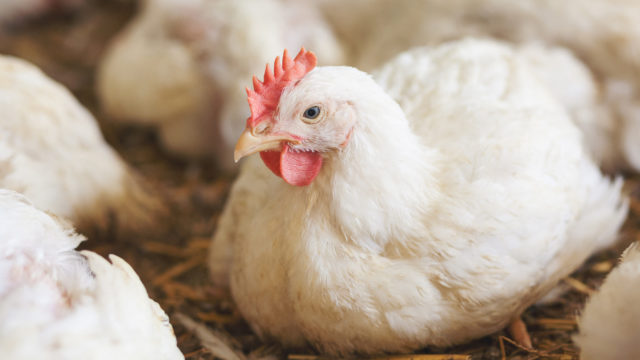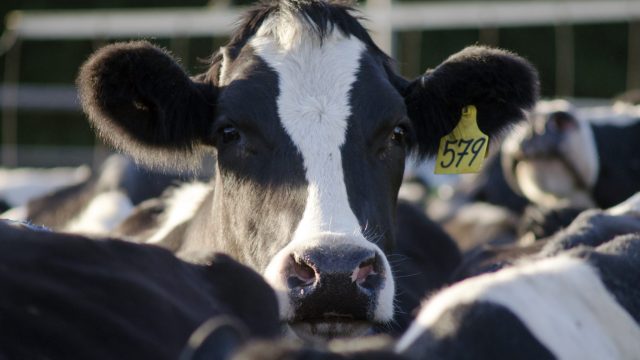
The Animal Legal Defense Fund and Center for Biological Diversity Ask FDA to Protect Consumers from Misleading Labels on “Natural” Foods
Americans are paying more attention to food labels, but that does not mean that current government regulations adequately ensure that those labels mean what consumers expect them to.
Contact: media@aldf.org
Cotati, CA – Americans are paying more attention to food labels, but that does not mean that current government regulations adequately ensure that those labels mean what consumers expect them to. However, the U.S. Food and Drug Administration (FDA) has the opportunity to take significant strides towards protecting consumers from unscrupulous producers of meat and poultry products who sell their factory farmed meat with misleading “natural” labels.
Today, the Animal Legal Defense Fund and the Center for Biological Diversity jointly submitted comments (PDF) to the FDA regarding the use of the term “natural” in labeling human food products, recommending that the term be defined in a way that aligns with what consumers reasonably believe “natural” to mean when it comes to the care and raising of farm animals.
The comments argue that, to prevent a likelihood of consumer confusion, the FDA needs to prohibit the use of “natural” on meat and poultry product labels when those products come from animals raised in ways that are anything but natural: being fed sub-therapeutic doses of antibiotics or other veterinary drugs, injected with growth hormones, or confined without outdoor access in spaces that prevent the animals from performing natural behaviors.
The comments also point out that many of the meat and poultry products labeled as “natural” actually come from Concentrated Animal Feeding Operations, also known as factory farms, which have devastating impacts on the local environment from air and water pollution.
Factory farms are also leading contributors to climate change. In short, nothing about many of the meat and poultry products with attractive labels and brand names using the term “natural” is natural at all.
Preventing products that come from animals raised in these conditions from being sold with a “natural” label will not only protect consumers from deception, but will also likely result in important public benefits. Companies wanting to capitalize on consumer demand for “natural” products will be discouraged from overusing antibiotics, which in turn will slow the growth of antibiotic resistant pathogens.
Companies will also have to raise animals in conditions that really are more natural – such as allowing them meaningful access to the outdoors. By the same token, if meat and poultry producers wanting to use a “natural” label are required to back up that claim, it will level the playing field for small, family farms that are truly trying to do the right thing.
“With a growing number of conscious consumers, it’s extremely important that labeling terms be clearly defined,” says Animal Legal Defense Fund Executive Director Stephen Wells. “A ‘natural’ label sells products, and it is the FDA’s duty to protect consumers from this kind of misleading food label.”
Focus Area
How We Work
Related
-
U.S. Supreme Court Declines Review of California’s Landmark Proposition 12 Animal Cruelty Law
The Animal Legal Defense Fund helps protect the strongest farmed animal protection law in the countryJuly 2, 2025 News -
Settlement Reached in California Water Use Lawsuit against Foster Poultry Farms
Foster Poultry Farms agrees to improve water conservation and animal welfare at its Livingston, California poultry-processing plantApril 21, 2025 Press Release -
REPORT: 95 Percent of Consumers Prefer “Climate-Friendly” Products, But Labels Oversell Emission Reductions
New report reveals how misleading labels lead to increased confusion among consumers searching for more sustainable, less environmentally damaging products.April 2, 2024 Press Release



